Onam is the most important festival in Kerala, celebrated with great enthusiasm and joy. It marks the homecoming of the legendary King Mahabali and is a harvest festival celebrated for ten days. The festival includes various activities such as the grand feast Onam Sadya, Pookalam (floral designs), Vallam Kali (boat races), Pulikali (tiger dance), and traditional music and dance.
Festivals
"Kerala is renowned for its vibrant and diverse festivals, which reflect the rich cultural heritage of the state. Major festivals such as Onam, Vishu, and Thrissur Pooram bring together people from all walks of life to celebrate with traditional music, dance, and rituals. These festivals are an integral part of Kerala's cultural identity and offer a unique glimpse into the state's traditions and customs."
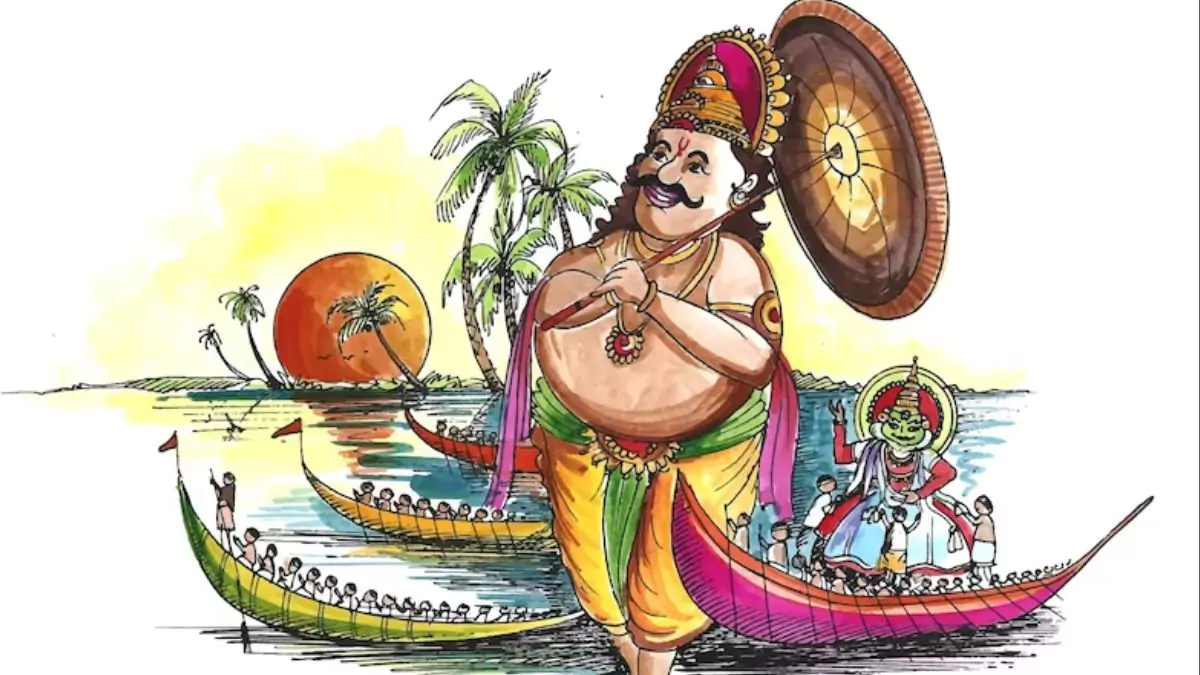
Onam
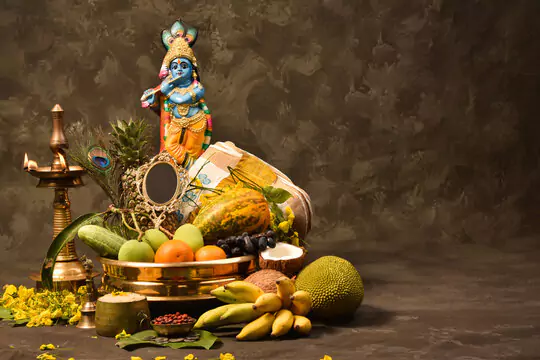
Vishu
Vishu is another significant festival in Kerala, celebrated as the Malayali New Year. It usually falls on the 14th or 15th of April. The festival is marked by the Vishukkani, which is an arrangement of auspicious items like rice, fruits, vegetables, and coins, which is the first thing people see when they wake up on Vishu morning. The day also includes fireworks, a feast, and the giving of Vishukkaineetam (money) to younger family members.
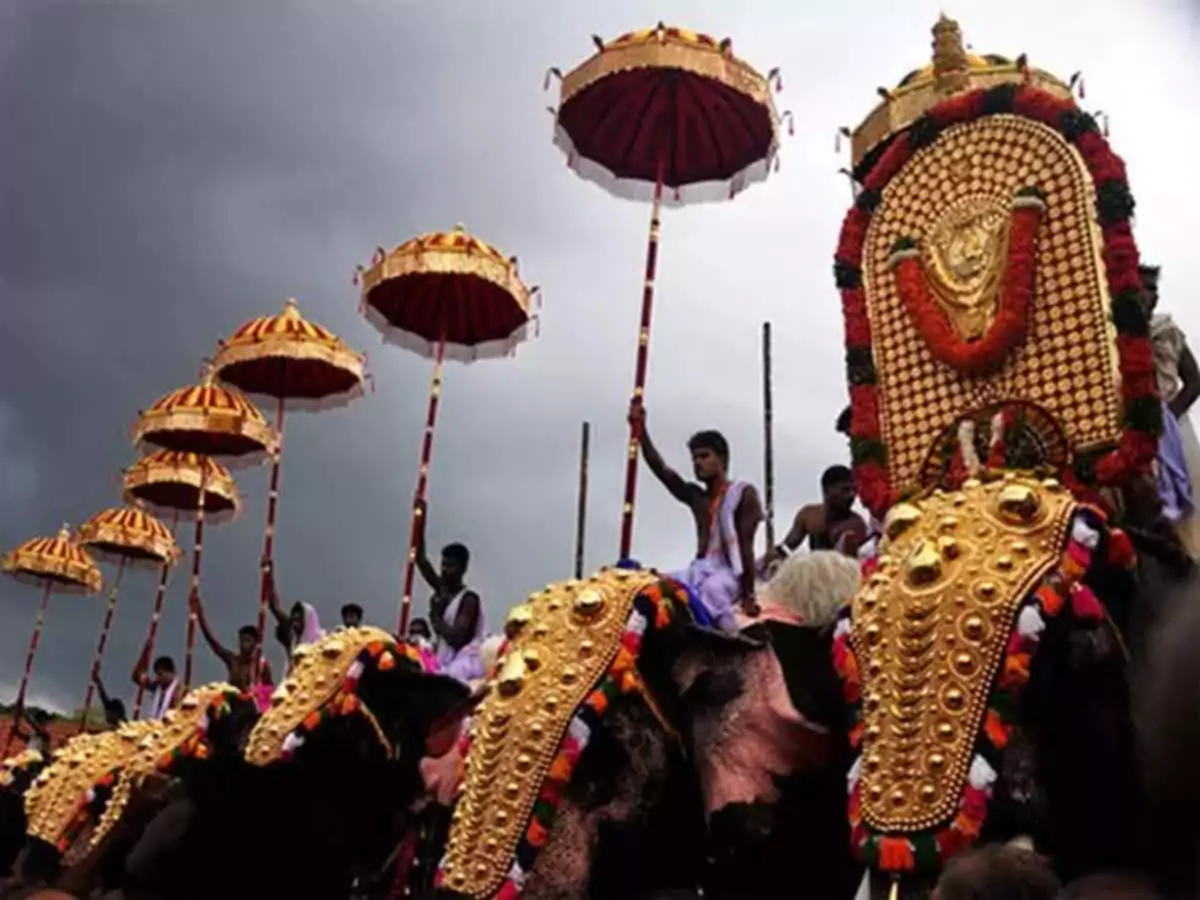
Thrissur Pooram
Thrissur Pooram is a grand temple festival held in the city of Thrissur. It is considered one of the largest and most spectacular temple festivals in Kerala. The festival features a grand procession of decorated elephants, traditional drum performances (known as Melam), and vibrant fireworks. It brings together people from all over Kerala and showcases the state's rich cultural heritage. The event is held at the Vadakkunnathan Temple in Thrissur and typically occurs in the month of April or May.
Traditional Arts and Dances
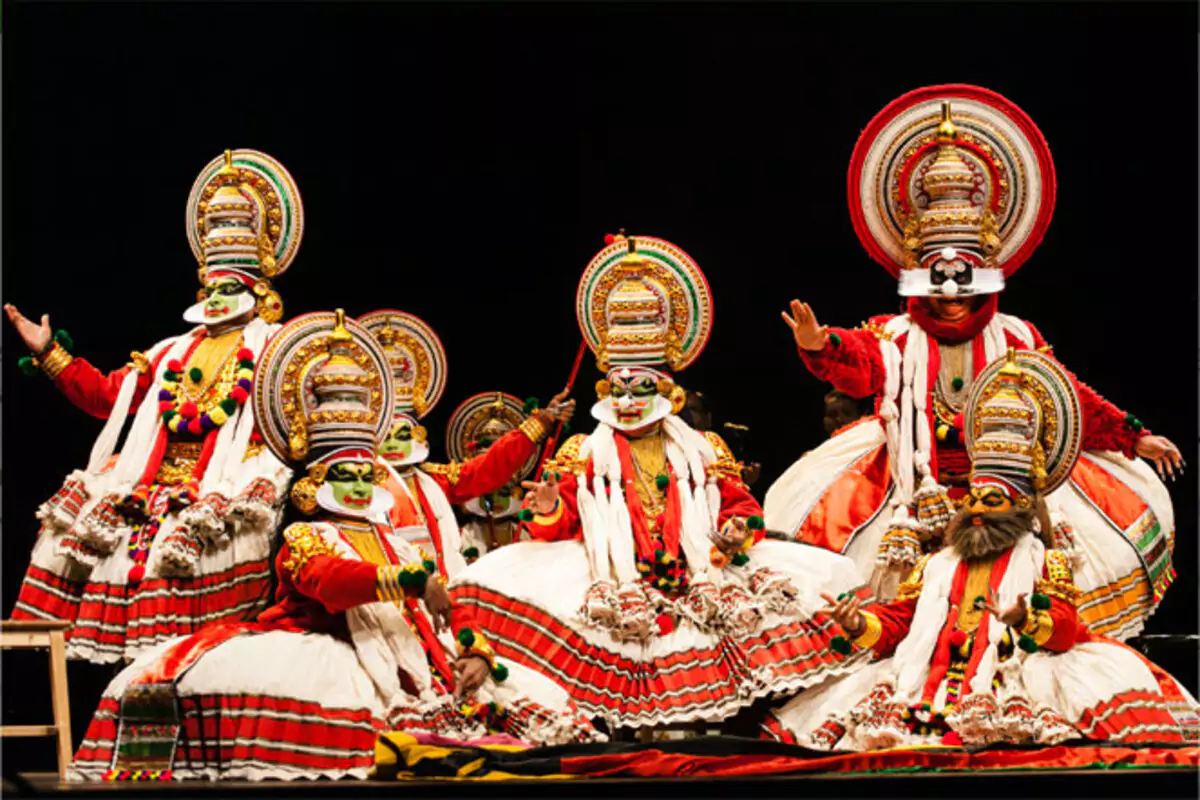
KadhaKali
Kathakali is a traditional dance-drama from Kerala, distinguished by its elaborate costumes, expressive makeup, and vibrant performances. It combines dance, drama, and music to depict stories from Hindu epics, using intricate gestures and facial expressions to convey emotions. This art form is a key part of Kerala's cultural heritage, celebrated during festivals and cultural events.
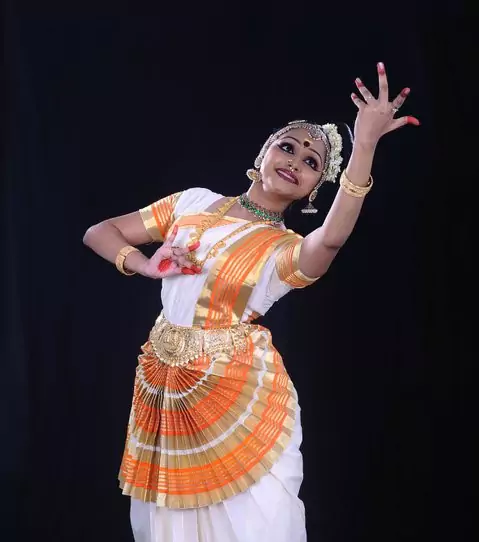
Mohiniyattam
Mohiniyattam, a classical dance form from Kerala, features graceful, swaying movements and intricate footwork, performed traditionally by women. It combines expressive storytelling with fluid choreography.It is traditionally performed by women and blends elements of Bharatanatyam and Kathakali. The dance often portrays themes of love and devotion.
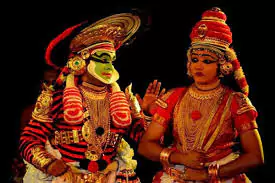
Koodiyattam
Koodiyattam is one of the oldest traditional art forms in Kerala, recognized by UNESCO as a Masterpiece of the Oral and Intangible Heritage of Humanity. This classical Sanskrit theater blends elements of drama, dance, and music, with performances often spanning several days. It is performed in temples by the Chakyar community
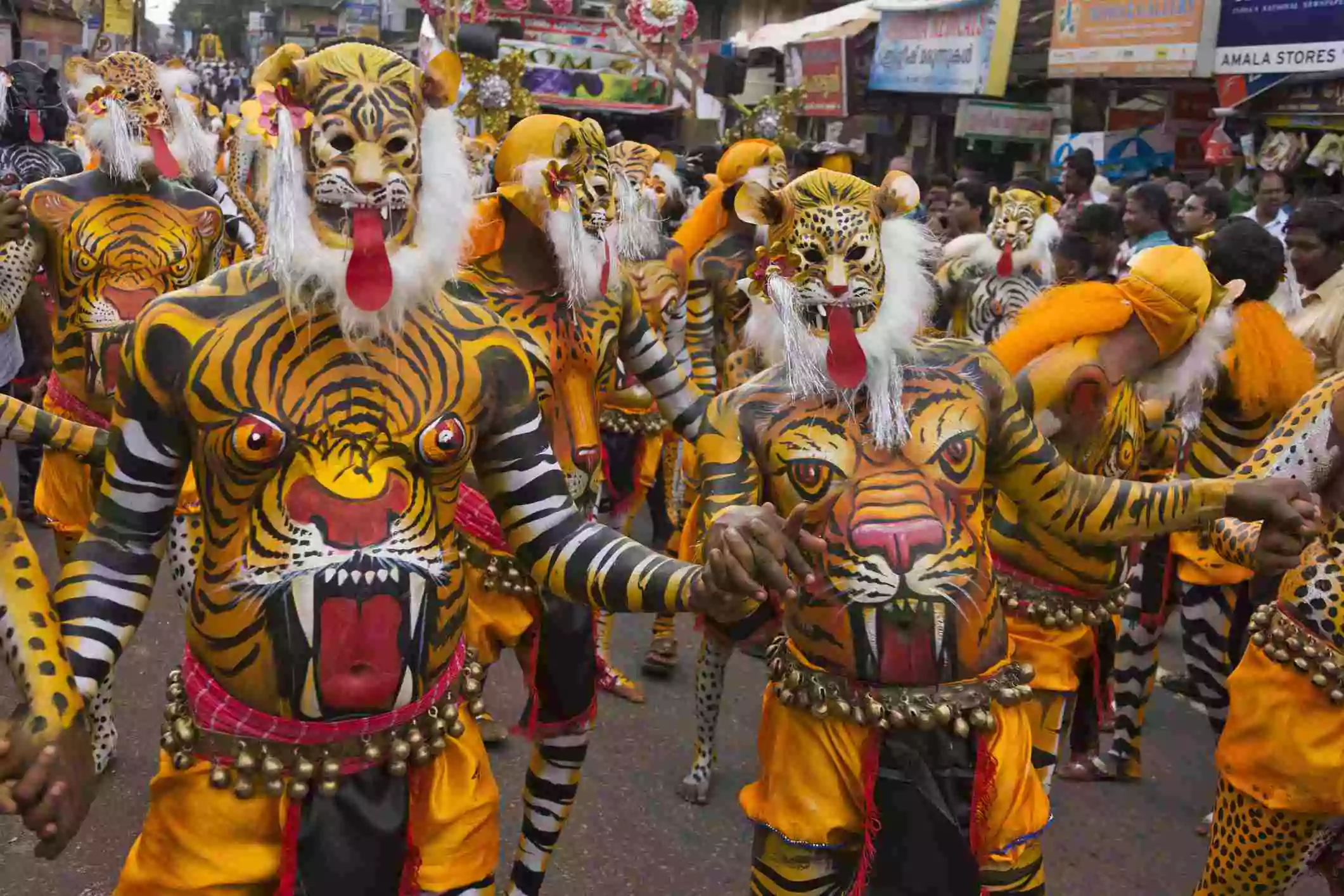
Pulikali
Pulikali, also known as the Tiger Dance, is a traditional folk art performed during the Onam festival in Kerala. Performers paint their bodies with tiger stripes and don tiger masks to dance to the rhythm of drums and music. This vibrant and energetic dance form is a popular attraction, symbolizing the playful and wild spirit of the festival.
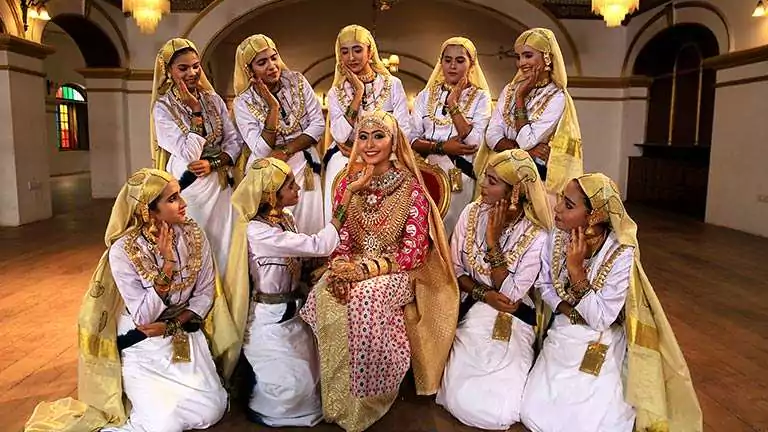
Oppana
Oppana is a traditional Muslim bridal group dance from Kerala, usually performed during weddings. It involves the bride sitting in the center while friends and relatives dance around her, clapping and singing rhythmic songs. The dance is characterized by its graceful movements and vibrant costumes, celebrating joy and togetherness.
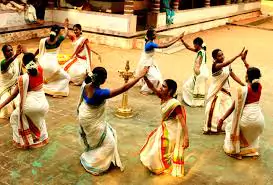
Thiruvathira
Thiruvathira is a traditional dance performed by women in Kerala during the festival of Thiruvathira, celebrated in honor of Lord Shiva. The dance is characterized by its graceful movements and is usually performed in a circle around a traditional lamp or light. Participants dress in traditional attire, and the dance is accompanied by folk songs that narrate stories of devotion and mythology.
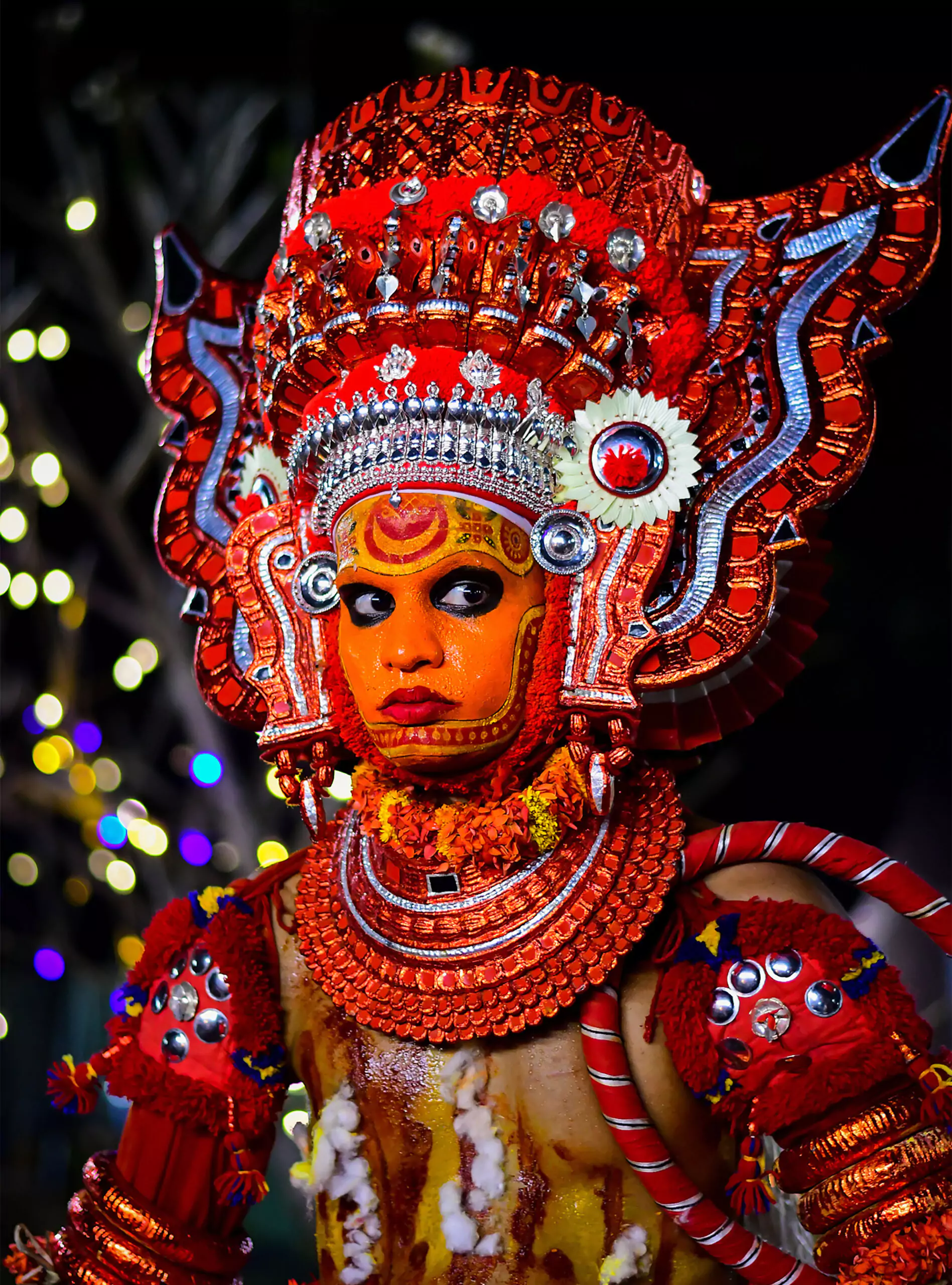
Theyyam
Theyyam is a traditional ritualistic art form of worship from the Malabar region of Kerala, India. It combines dance, music, and mime, where performers, often in elaborate costumes and makeup, enact stories of gods, ancestors, and legendary heroes to invoke blessings and offer solace to the community.
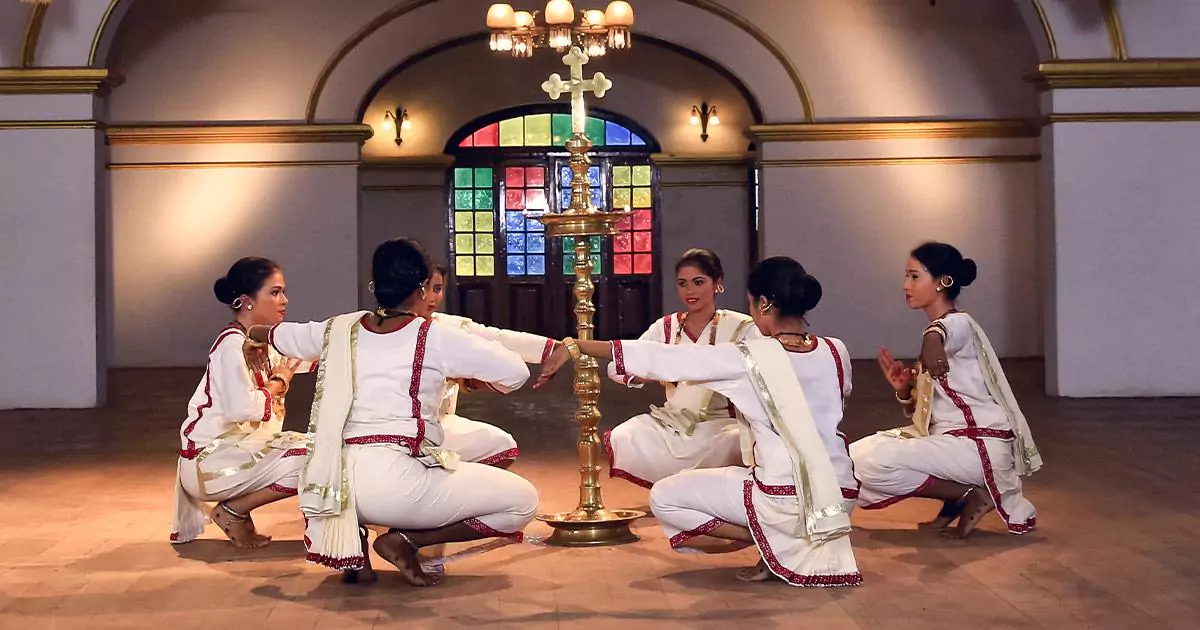
Margamkali
Margamkali is a traditional Christian folk dance of Kerala, India, primarily performed by the Saint Thomas Christians. This dance form, often enacted by women in a circular formation, features graceful movements and rhythmic clapping while narrating the story of St. Thomas, the apostle who is believed to have brought Christianity to India.
Food and Fashion
Kerala's cultural essence shines through its iconic Sadhya and traditional attire, the Mundu. Sadhya is a grand vegetarian feast served on a banana leaf, featuring a variety of dishes like rice, sambar, avial, and payasam, showcasing the state's rich culinary tradition. Complementing this is the Mundu, a simple yet elegant white cotton garment with a gold or colored border, worn by both men and women, symbolizing Kerala's timeless grace and cultural heritage.
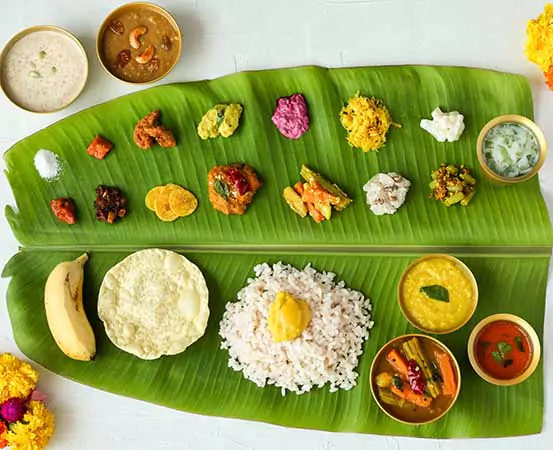
Sadhya
Onam Sadhya is the centerpiece of the Onam festival, celebrated annually in Kerala. This elaborate feast consists of a variety of traditional vegetarian dishes served on a large banana leaf, reflecting the rich culinary traditions of the region. The meal typically includes dishes like rice, sambar (a lentil-based vegetable stew), avial (a mixed vegetable dish with coconut), thoran (a dry vegetable stir-fry), and payasam (a sweet dessert). Each dish is meticulously prepared, offering a harmonious blend of flavors and textures. The Sadhya is not just a meal but a cultural experience, symbolizing abundance, togetherness, and the festive spirit of Onam.
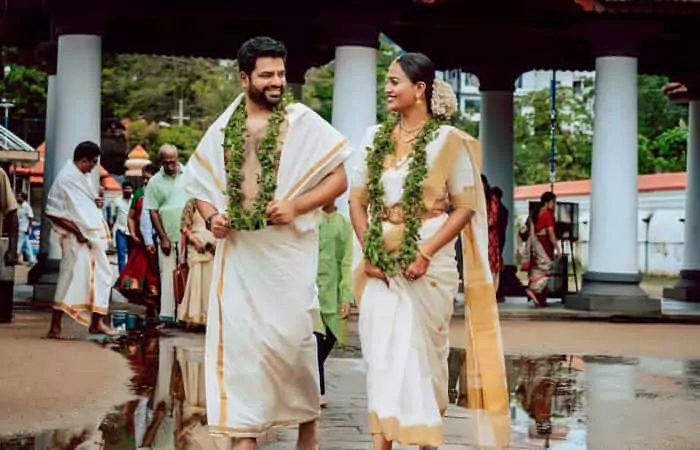
Mundu
The Mundu is a simple yet elegant white cotton garment with a distinctive gold or colored border, worn by both men and women in Kerala. This traditional attire epitomizes the grace and simplicity of Kerala's fashion. For men, it's typically worn with a shirt, while women pair it with a matching blouse. The Mundu is not just clothing; it's a symbol of Kerala's cultural identity, often featured in festivals, ceremonies, and daily life. Its lightweight fabric is perfect for Kerala's tropical climate, combining comfort with timeless style. The Mundu's versatility extends beyond formal occasions to everyday wear, making it a staple in Kerala's wardrobe.